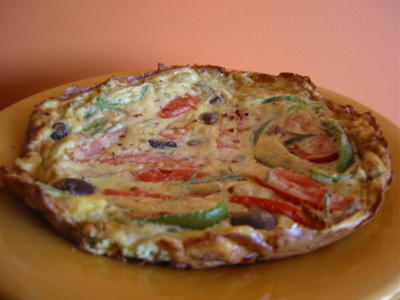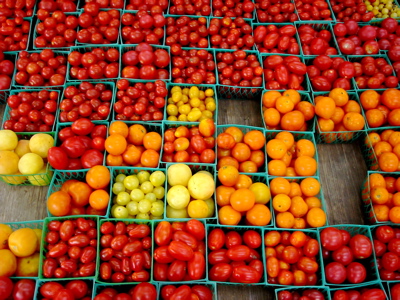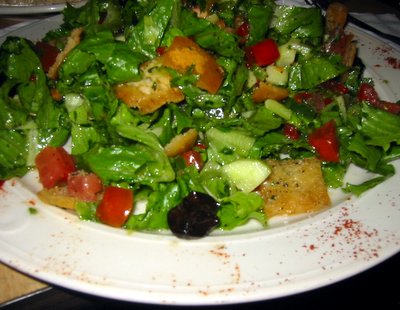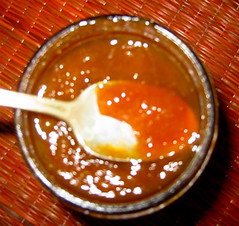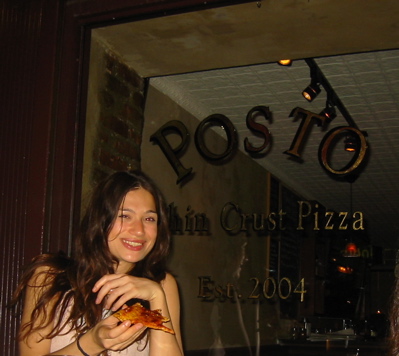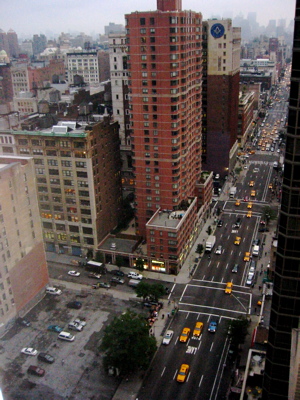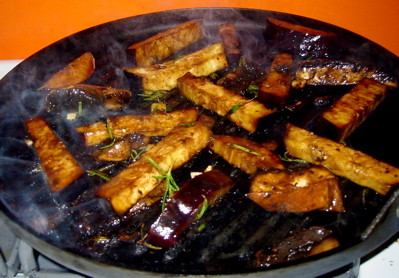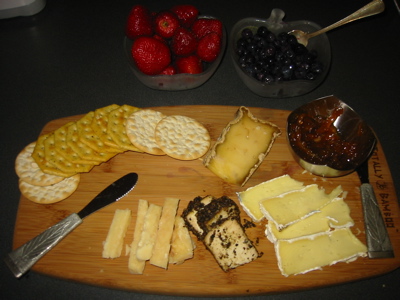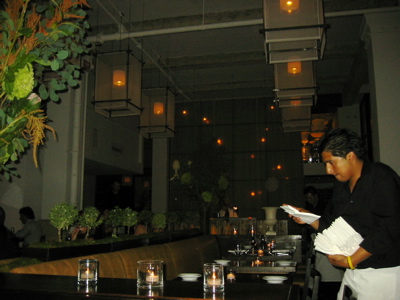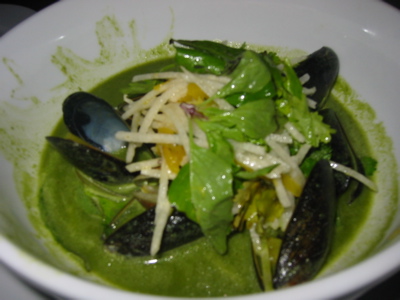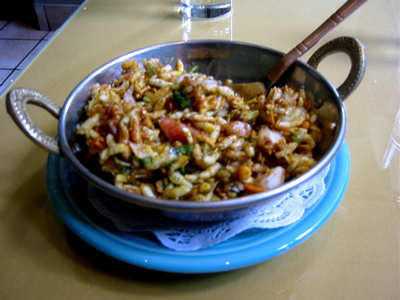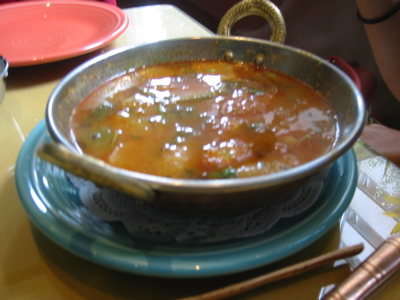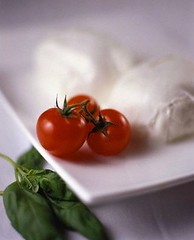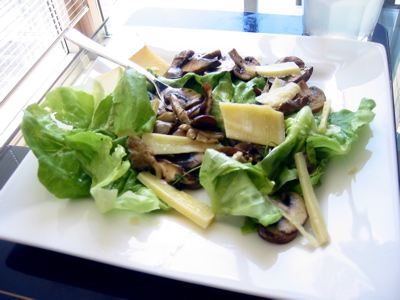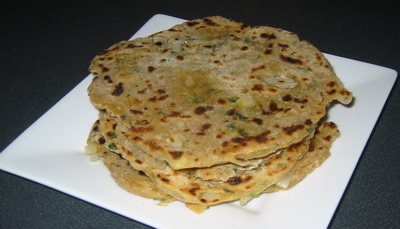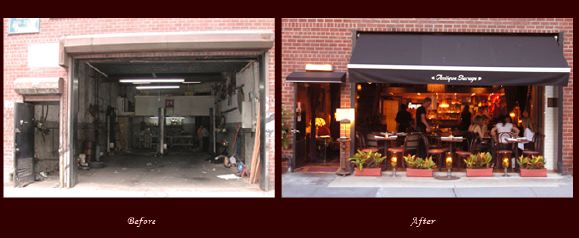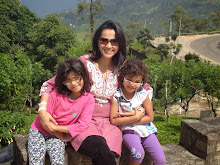
I took my first cooking class ever yesterday. I've been searching for interesting vegetarian cooking classes in Manhattan but wasn't able to find a class at which at least three quarters of the recipes being taught would be meatless. After several Googlings, I found
the National Gourmet Institute for Food and Health, located just a few blocks away from my apartment. The school offers a variety of public classes for those not enrolled in their regular programs. The
Authentic Moroccan class by Myra Kornfield (author of
The Voluptous Vegan and ex-head pastry chef at Angelica Kitchen) was the perfect class for me as I love learning about cuisines that have lots of complex flavours.
Moroccan cuisine uses an exotic array of ingredients from sun-dried tomatoes and red hot chili peppers to preserved lemons and orange flower water. The melange of everything on a plate of Moroccan food is what makes eating this type of food so exciting. You never know if you're going bite into a plump raisin or savour the flesh of a roasted pepper coated with lemon juice and fresh herbs. Or relish the saffron spiked vegetable stew over freshly steamed couscous in between bites of orange and carrot salad.
Myra was a ball of energy and a fabulous instructor. She taught us many little things about cooking in general as we prepared the various dishes. Who knew that roasting peppers over a gas flame was that much better than broiling them. Or that tempeh is the closest subsitute to red snapper or Striped Bass. This cooking class was hands-on so twelve of us were divided into two groups. Each group made all the dishes and we had a big feast at the end of class.
Learning how to make fluffy couscous was my biggest take away. Forget about the five minute method professed by the store-bought brands. Couscous requires a lot of TLC. It needs a lot of love by way of washing, drying, swelling and a couple of steamings in a couscousier (a pasta cooking pot that comes with a steamer insert is a good substitute) to get it to its best form. Before the second steaming, I learnt that you should sprinkle salt and then work the couscous with oiled hands to keep each grain separate. If all goes well, you'll end up with amazingly tender and airy couscous which can be garnished with freshly chopped parsley:
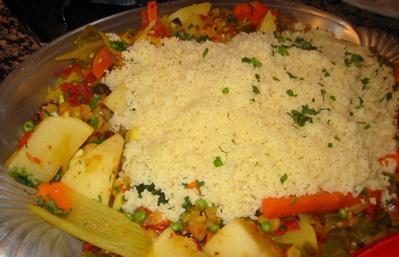
My second biggest takeaway was learning how to make
harissa, the deep orange coloured chili paste that is stirred into stews. You can use this paste to jazz up any Moroccan dish. It is made from red hot chili peppers, sun-dried tomatoes and a few spices like caraway, cumin and coriander with garlic and olive oil. A little bit goes a long way and it keeps well in the fridge. Here's the harissa my group made:
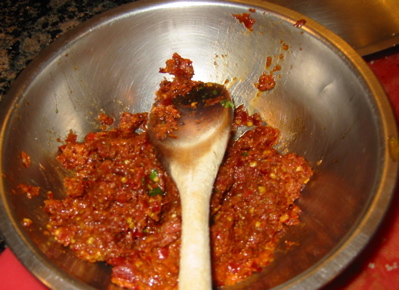
I also learnt to make a seven vegetable stew using turnips, celery, zucchini, carrots, green peppers, tomatoes and peas:
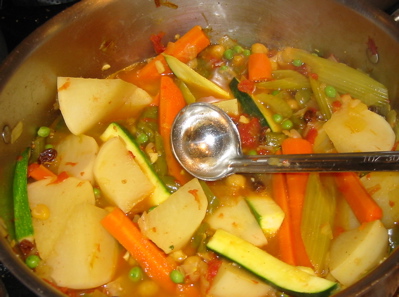
The three pepper salad with preserved lemon was my favourite dish:
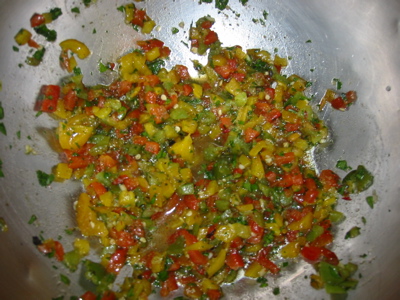
But I also loved the spiciness of the chickpeas in charmoula (a classic Moroccan herb and spice vinaigrette):
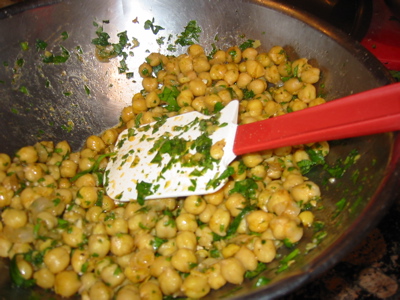
Dessert was semolina cookies with orange and lemon drizzled with chocolate:
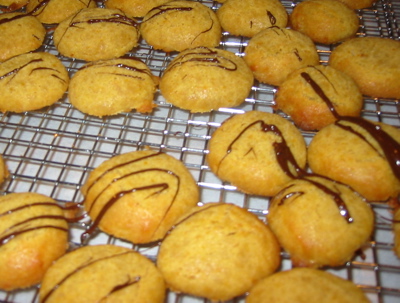
Now that I have some knowledge of Moroccan cuisine, I can't wait to cook the same
Moroccan Feast at home. Any takers?
